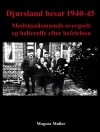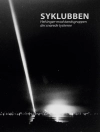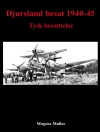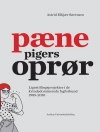The Nazi Worker is the second in a three-volume project on the figure of the worker and, by extension, questions of class in twentieth-century German culture. It is based on extensive research in the archives and informed by recent debates on the politics of emotion, the end of class, and the future of work. In seven chapters, the book reconstructs the processes by which National Socialism appropriated aspects of working-class culture and socialist politics and translated class-based identifications into the racialized communitarianism of Volksgemeinschaft (folk community). Arbeitertum (workerdom), the operative term within these processes of appropriation, not only established a discursive framework for integrating proletarian legacies into the cult of the German worker. As a social imaginary, workerdom also modelled the work-related emotions (e.g., joy, pride) essential to the culture of work promoted by the German Labor Front. The contribution of images and stories in creating these new social imaginaries will be reconstructed through highly contextualized readings of the debates about workerdom, Nazi movement novels, worker’s poetry, workers’ sculpture, as well as industrial painting, photography, film, and design.
Over de auteur
Sabine Hake, University of Texas at Austin, Austin, TX, USA.











